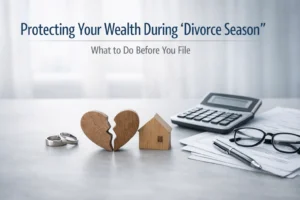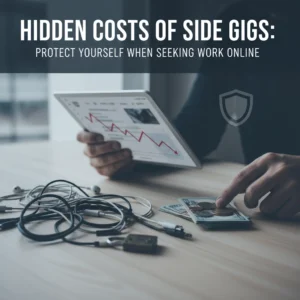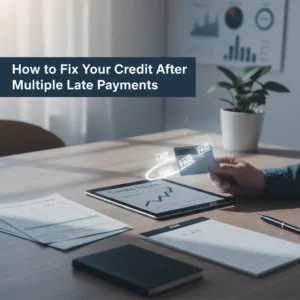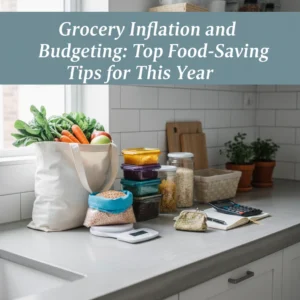The $349 billion Paycheck Protection Program (PPP), which offers forgivable PPP loans to America’s small business owners and contractors, is shaping up as one of the most in-demand lending programs ever from the Small Business Administration.
After the PPP loan initiative was in effect for only 3 business days, on April 7, 2020 President Trump said that banks processed $70 billion in loan requests from 250,000 small businesses.
To deal with the overwhelming demand, Treasury Secretary Steven Mnuchin also asked Congress to authorize an additional $250 billion in PPP loan funding.
But many people are asking questions such as:
- Who is eligible for a PPP Loan?
- Does my business, entity or industry qualify for the Payroll Protection Program?
- Can my type of gig economy work, freelance projects or self-employment income get me a PPP loan?
To help you determine your eligibility, below is a list of more than 150 occupations that can obtain funding through the SBA’s PPP loan program. The people who qualify include: small business owners, self-employed individuals, sole proprietors, those who operate non-profits, contractors and freelancers.
This list is not meant to be all-inclusive, but rather to show you the wide range of individuals, type of work, and industry categories that do qualify for a PPP loan.
At the end of the list, I will also specify the groups of individuals and industries that are NOT eligible for a PPP loan.
But first, it’s important to understand several key general requirements of the Paycheck Protection Program:
- You must NOT be currently in jail, on probation or parole, or the subject of any formal criminal charges, such as an indictment, arraignment or criminal information complaint
- You must NOT be currently delinquent on any federal debt, such as an SBA loan or federal student loans; and in the past 7 years, you or your business must NOT have defaulted on any federal debt that caused a loss to the U.S. government
- You must reside in the United States
- You must apply by June 30, 2020 – and preferably as soon as possible, since funds are distributed on a first-come, first-served basis
- Your business or entity must have fewer than 500 employees* and fall into one of these categories:
-
- For-profit businesses
- Franchises*
- Non-profit groups, including religious groups**
- Veterans organizations
- Tribal businesses
- Sole proprietorships
- Self employed individuals
- Independent contractors
- Anyone who gets a 1099
* There is an exception for the accommodations/hotel and food services industries, and franchises. If a business has multiple locations or franchisees, it can still qualify for the Paycheck Protection Program and get a PPP loan, if the specific site seeking a loan has no more than 500 employees, and its NAICS Code begins with 72 (i.e. hotels, bars, restaurants, etc.).
**Under the CARES Act and according to special SBA rules governing the Paycheck Protection Program, faith-based groups, including houses of worship, also qualify for PPP loans. The SBA says that regardless of a group’s religious status, as long as it is a 501(c)(3) organization and it meets the PPP loan requirements, all types of churches are eligible for PPP loan funding, including temples, mosques, synagogues, and other houses of worship, along with integrated auxiliaries of churches, and conventions or associations of churches.
List of PPP-Eligible Small Business Owners, Entrepreneurs and Contractors
Now that you have a good overview about eligibility, check below to see if you find your line of work. Note: as long as you have a business or non-profit, you get a 1099, or do part-time or full-time contracting/project work as one of the following, and you meet the other criteria mentioned above, you should have no problem getting a PPP loan.
- Accountant
- Actor
- Administrative assistant
- Acupuncturist
- Agent
- Agricultural producer
- Analyst
- Animal trainer
- App developer
- Apparel maker
- Appraiser
- Architect
- Artist
- Attorney
- Author
- Auto mechanic
- Baker or bakery shop proprietor
- Bar owner
- Barber
- Bartender for private events
- Beauty supply provider
- Bed and breakfast operator
- Beverage store owner
- Blogger
- Book publisher
- Bookkeeper
- Brewer
- Business manager/specialist
- Butcher
- Café or ice cream shop operator
- Car driver
- Car wash owner
- Career strategist
- Carpenter
- Casino owner
- Caterer
- Chef
- Child care/day care provider
- Chiropractor
- Cigar shop proprietor
- Clergy member (pastor, priest, rabbi, imam, etc.)
- Clothing store owner
- Club owner
- Coach
- Coder/computer programmer
- Construction specialist
- Consultant
- Contractor
- Copywriter
- Cosmetics seller
- Counselor
- Crafts maker
- Crane operator
- Dance instructor
- Dance studio owner
- Deli or Bodega owner
- Delivery person
- Dentist
- Dermatologist
- Designer
- Doctor/physician
- Dog walker
- Driver
- Dry cleaner
- E-commerce specialist
- Economist
- Editor
- Education consultant
- Electrician
- Electronics seller
- Engineer
- Entertainer
- Event Planner
- Exporter
- Fabric maker or seller
- Farmer
- Fashion designer
- Financial planner/advisor
- Fitness instructor/trainer
- Food vendor
- Florist
- Food truck operator
- Franchisee/Franchise owner
- Furniture maker
- Gardener
- Gift basket creator
- Graphic artist
- Grocery store owner
- Hair stylist
- Handyman
- Heating, venting and cooling/HVAC specialist
- Home repair/home improvement professional
- House cleaner/cleaning service owner
- Hotel or motel operator
- Independent contractor
- Instructor
- Insurance agency owner
- Interior decorator
- IT specialist
- Jewelry maker/dealer
- Landscaper
- Life coach
- Lifeguard
- Liquor store owner
- Makeup artist
- Manicurist/pedicurist
- Manufacturer
- Marketing expert
- Massage therapist
- Ministerial staffer or contractor
- Moving and hauling specialist
- Musician
- Nurse
- Nutritionist
- Online seller/re-seller
- Painter
- Pharmacist
- Photographer
- Pilot
- Plumber
- Podcaster
- Pool cleaner/pool maintenance worker
- Pop-up space operator
- Producer
- Publicist
- Psychiatrist/psychologist
- Public speaker
- Real estate agent/realtor
- Repair person
- Researcher
- Restaurant owner
- Resume preparer
- Retail store owner
- Roofer
- Salesperson
- Salon owner
- Seamstress
- Search engine optimization (SEO) consultant
- Security guard
- Senior care provider
- Shoe seller/re-seller
- Social media expert
- Software developer
- Spa owner
- Sports coach
- Statistician
- Stockbroker
- Surgeon
- Tax preparer
- Textiles seller
- Trainer
- Translator
- Travel planner/specialist
- Truck driver
- Tutor
- Videographer
- Virtual assistant
- Veterinarian
- Website designer
- Welder
- Winery owner
- Woodworker
- Writer
- Zoologist
Individuals and Businesses Ineligible for PPP Loans
Although the Paycheck Protection Program is wide-ranging in terms of people who are eligible for PPP loans, there are some categories of individuals that operate in industries that not eligible for this funding.
The following businesses are NOT eligible to apply for and will NOT qualify for PPP loans:
- banks
- life insurance companies
- foreign businesses
- gambling businesses
- any illegal businesses
- passive businesses owned by property developers or landlords that do not actively use or occupy the assets acquired or improved with the loan proceeds;
- private clubs and businesses that restrict membership for reasons other than capacity
- other businesses or entities listed in 13 CFR § 120.110 (These range from financial companies primarily engaged in lending activities to strip clubs, porn shops and businesses that present live performances of a “prurient sexual nature”).
Again, most types of self employed workers or small businesses do qualify. So if your organization is in need of added funding, the Paycheck Protection Program is worth exploring.
Getting PPP Loan Forgiveness
PPP loans can be used for the following business-related expenses: payroll, mortgage interest, rent, and utilities.
Whatever amount you borrow, your PPP loan can ultimately be 100% forgivable if you just follow two simple rules:
- 1) You use the funds for their stated purposes, including spending at least 75% of loan proceeds on payroll costs
- 2) You maintain payroll and don’t reduce headcount among your employees in the 8 weeks after you receive a PPP loan
The CARES Act, which authorizes the Paycheck Protection Program under the SBA’s 7(a) loan program, defines employee payroll as: salary, wages, commissions, or similar compensation; cash tips or the equivalent (based on employer records of past tips or, in the absence of such records, a reasonable, good-faith employer estimate of such tips); payment for vacation, parental, family, medical, or sick leave; allowance for separation or dismissal; payment for the provision of employee benefits consisting of group health care coverage, including insurance premiums, and retirement; payment of state and local taxes assessed on compensation of employees.
If you are an independent contractor or sole proprietor seeking a PPP loan, then payroll is defined as: wage, commissions, income, or net earnings from self-employment or similar compensation.
Overall, with a PPP loan, the federal government is basically funding a big part of your business or non-profit’s expenses for two whole months. It’s a sweet deal.
No wonder eligible people have applied in droves to get their share of the pie — and take part in the SBA’s huge multi-billion Paycheck Protection Program.
There are some 30 million small businesses in America that employ about 60 million people.
If you’re interested in the PPP loan program, be sure to bookmark this page to get the latest updates as they become available.










